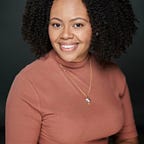Jane Edna Hunter
Social Worker, Nurse, and founder of the Phillis Wheatley Association
Jane Edna Hunter was born in Pendleton, South Carolina and grew up in a tenant house on the Woodburn Plantation. She attended Ferguson and Williams Academy in Abbeville, South Carolina. In order to support herself after the passing of her father at 10 years old, Jane completed domestic work for local families in the area while also in school. At 17, she married her husband Edward Hunter and left shortly after to start nursing school at Cannon Street Hospital and Training School for Nurses in Charleston, South Carolina. In 1904, completed further nurse training at Hampton Institute in Virginia.
Upon graduation, Hunter moved to Cleveland, Ohio in 1905. As one of the few Black nurses in the area (reportedly one of two Black nurses), she struggled to find affordable and safe housing because of segregation laws and practices. However, through a church connection she was connected to John D. Rockefeller’s, a white American philanthropist, doctor which led to a breadth of opportunities for Hunter. While working various nursing jobs, with donations and the help of other African American women, Hunter opened the Working Girls Home Association in 1911. This home would address the problem Hunter confronted herself years earlier by providing safe and affordable housing. Within a year she changed the name to the Phillis Wheatley Association, which modeled similar institutions throughout the U.S. By 1917, Hunter purchased a 3-story building to house 75 women and also had an adjoining building where the Association hosted social and educational activities. The PWA also provided women with vocational training and skills development.
Hunter faced an array of discontent from both Black and white residents who objected to the development of the home. However, she was able to gain support from philanthropist and ministers in the area with some negotiation of who could and would serve on the leadership board. Hunter graduated from law school and passed the Ohio bar exam in 1925. In 1940, she wrote A Nickel and a Prayer, an autobiography which outlines her journey from a girl in the South to a leader in the North helping other women navigate the tumultuous terrain of American race relations. By 1947, Hunter retired and developed the Phillis Wheatley Foundation which helped raise money scholarships, women’s programs and services. She received honorary degrees from Allen University, Fisk University, Central State University and Tuskegee Institute and served and was a member of the National Association for the Advancement of Colored People and served on the executive committee of the National Association of Colored Women. Hunter passed in 1971. Although her legacy and contributions in Ohio are immeasurable, she was inducted in the Ohio Women’s Hall of Fame. The Phyllis Wheatley Association is now a member of the Greater Cleveland Neighborhood Centers Association and stands as a multi-service community center.
Sources
The information above was sourced from National Park Service, Encyclopedia of Cleveland History, VCU Social Welfare History Project.
Learn More
To learn more about inclusion in nursing and be part of the national discussion to address racism in nursing, check out and share the following resources:
Know Your History
- Nursing CLIO to engage with historians and scholars committed to deep work around historical accuracy in healthcare and nursing.
- American Association for the History of Nursing to attend monthly webinars on topics of nursing history, view the calendar here.
Examine Bias
- NurseManifest to attend live zoom sessions with fellow nurses on nursing’s overdue reckoning on racism or to sign their pledge.
- Breaking Bias in Healthcare, an online course created by scientist Anu Gupta, to learn how bias is related to our brain’s neurobiology and can be mitigated with mindfulness.
- Revolutionary Love Learning Hub provides free tools for learners and educators to use love as fuel towards ourselves, our opponents, and to others so that we can embody a world where we see no strangers.
Support & Advocate
- National Black Nurses Association
- National Coalition for Ethnic Minority Nurse Association to stay engaged with topics relevant to nurses of color.
Help us paint the internet with nursing’s diverse origin stories. Follow this Medium publication, NursesYouShouldKnow on Instagram, LinkedIn, or Facebook, or @KnowNurses on Twitter to share and re-post our articles far and wide.
